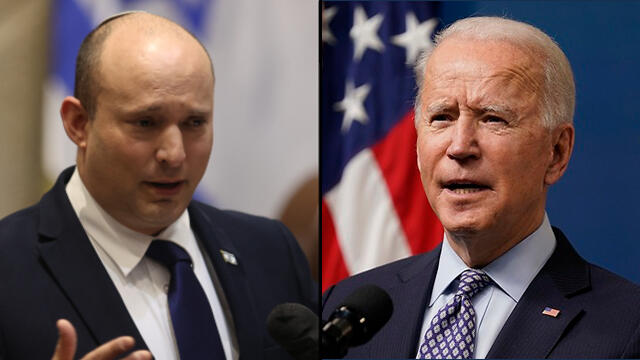Heads turned back in May when former Israeli ambassador to the U.S., Ron Dermer, suggested that Israel should prioritize the “passionate and unequivocal” support of evangelical Christians over that of American Jews who, he said, are “disproportionately among our critics.”
“People have to understand that the backbone of Israel’s support in the United States is the evangelical Christians. It’s true because of numbers and also because of their passionate and unequivocal support for Israel,” Dermer said at a conference organized by an Israeli media outlet, which marked his first public remarks after concluding a seven-year term as Israel’s ambassador in Washington.
5 View gallery


Former Prime Minister Benjamin Netanyahu addresses the Christian Media Summit in Jerusalem, October 14, 2018
(Photo: Haim Tzach, GPO)
Dermer, known to be extremely close to former Prime Minister Benjamin Netanyahu, had, like his former boss, spent years cultivating relationships with America’s Christian community.
The foundation of those ties stretched back to Netanyahu’s tenure as Israel’s ambassador to the United Nations in the mid-to-late 1980s, and the relationship reached its peak during the tenure of former U.S. President Donald Trump, who initiated a series of pro-Israel policies which Trump admitted were put in place in large part to please his own evangelical Christian base.
But a new administration took over in Washington in January, and the prime minister’s office in Jerusalem changed hands in June.
On November 11th, Israel’s Government Press Office was hosting the fifth annual Christian Media Summit, with over 150 news executives and opinion leaders in Christian media in attendance. Prime Minister Naftali Bennett, Foreign Minister Yair Lapid, Opposition Leader Netanyahu, and President Isaac Herzog were set to address the gathering. And while the current Israeli government has placed a much greater focus on strengthening ties with American Jewry, experts say it is not ceding any ground with the evangelical community in the process.
“Evangelicals certainly had a unique relationship with the previous Israeli government. We knew figures in that government for decades. However, I am seeing this new government is continuing to recognize the role that our community plays around the world. It may be different, but I don’t see any de-emphasis. I think the new leaders, to the shock of some of their constituents, have openly and publicly engaged with us,” the Rev. Johnnie Moore, an American evangelical leader and president of the Congress of Christian Leaders said.
5 View gallery


Evangelical Christians march in a demonstration of support for Israel in Jerusalem in 2016
(Photo: AFP)
Moore has been active in Middle East politics, establishing relationships with key leaders in Bahrain, Saudi Arabia, the United Arab Emirates, and Egypt, and was among several Christian leaders whose quiet diplomacy laid the groundwork for the Abraham Accords and other normalization agreements between Israel and the Arab and Muslim world.
“It’s not the role of the evangelical community to intervene in internal Israeli politics. I was out there clearly and quickly (after the change in government), telling Israel and our own community that it doesn’t matter who is in government. They can count on our community. Now with this summit, the current government needed to make it clear – this was the first opportunity to send the message that they might be at political odds with Netanyahu, but they can’t disagree with him about the importance of Israel’s relationship with evangelicals,” said Moore.
There is another side of the equation. American evangelicals often had the ear – and sometimes a direct line – to Trump. His final secretary of state, Mike Pompeo, is an avowed evangelical. The ability of the community to influence current U.S. President Joe Biden is exponentially lower.
“Evangelicals still remain adamant about standing with the Jewish people, but there is certainly less direct involvement” with American government decisions, Chris Mitchell, the Christian Broadcasting Network’s Middle East Bureau Chief said. “There is concern about the pressure Biden may be putting on Bennett. I think there are concerns about the (Israeli governing) coalition aligning itself with an Islamist party. But evangelicals will stand with Israel no matter what. It transcends politics,” he said.
Moore said the evangelical community helped push back on pressure from the American far-left during this May’s 11-day conflict between Israel and Hamas in Gaza, which also posed a significant diplomatic and credibility challenge for Israel’s newfound partners in the Arab world.
“I think the evangelical role in the U.S.-Israeli relationship proved to be totally indispensable yet again. The battle with Hamas is the clearest example. The far-left tried to fragment the American pro-Israel coalition, and the traditional alliance of evangelicals hit back. Had it not been for evangelicals, that coalition may not have stood. We still have a very practical effect on American politics,” Moore said.
“But it’s not only about Israel and Hamas. The way the Abraham Accords stood up despite that first, significant test – certain leaders in evangelical and Christian communities, some of who forged an important start to the accords, fortified it during that first big test,” said Moore.
While ties remain strong, a troubling poll that was released in the wake of May’s violence has some of the evangelical community’s old guard on edge. A survey commissioned by researchers at the University of North Carolina at Pembroke, and carried out by Barna Group, an evangelical Christian polling firm, found that younger evangelicals are much less supportive of Israel than older evangelicals, by a widening margin. The poll found that between 2018 and 2021, support for Israel among young evangelicals dropped from 75% to 34%.
“I don’t think it’s going to stick, but the slide is real. The whole human rights narrative used to demonize Israel has been hijacked by the world’s worst violators. The narrative from Israel is almost exclusively about security, and I think Israel needs to be less on defense and more on offense in its public relations,” said Moore.
“The enemies of Israel have mischaracterized their struggle very effectively and Israel hasn’t always been very good at telling its side. I will tell you that the younger generation, living in the digital age, has never lived in an America in a really active war. It didn’t live through the worst terror attack in America. The Israeli narrative about security doesn’t ring as strongly as it once did,” Moore said.
Now, the Israeli government is fighting to retain its American friends on two fronts, re-engaging with an American Jewry that many says was neglected during the Netanyahu years while trying to secure the future of evangelical support.
“There is definitely concern about the younger generation as a result of social media, and not as much of an emphasis being placed on the scriptures. I think Israel is aware and doing what they can, supporting programs like Passages, which brings Christian leaders of university age on trips to connect with Israel,” said Mitchell.
Passages Israel is a nonprofit organization that offers Christian college students the opportunity to take a nine-day educational trip to Israel, where they hear “authentic first-person perspectives from Jewish, Christian, and Muslim Israelis, and Christian and Muslim Palestinians,” according to the group’s website.
In terms of the media members themselves who attended the summit, most were still very much in a process of testing the waters in dealing with the current Israeli government following Netanyahu’s long tenure.
“I haven’t seen a difference in Christian media coverage of Israel since the change in governments. In Israel, people tend to think evangelicals are following chapter-and-verse Israeli politics. I am not sure American Christians are paying that close attention to it. I think a lot of religious Christians appreciate that the new prime minister is a religious Jew. So, for me, who does watch it closely, there is some nuance, but the nuance has always been there,” said Moore.
Mitchell agreed, saying the media summit presented an opportunity for journalists and government members to have a proper, up-close introduction, and to focus on the issues that bring evangelicals and Israel together, to begin with.
5 View gallery


Evangelical Christians from various countries wave flags as they march to show their support for Israel in Jerusalem
(Photo: AP)
“Learning the nuances of the new political leaders, getting to know the new dynamics – it’s a bit of a learning process. But the same journalistic standards apply as in any other area of coverage. You want to cover what’s going on and report facts. The Christian media is finding its way with the new government but, in that regard, so too is the coalition finding its way with the media,” Mitchell said.
“I think by informing your viewers and audience about things like the benefits of the Abraham Accords, how it is positively impacting Israel, the effect it’s had on the region and on Israel’s relations with Sunni Arab states, how it’s bringing peace, and what role Christians played in this … Psalm 122:6 commands us to pray for the peace of Jerusalem. That goes beyond the politics of the day,” said Mitchell.
The Christian media is an important way for Israel to reach the world’s Christian community, according to Israel’s Government Press Office. “The summit focuses on key topics relevant to Israel and the Christian world. The goal is to foster better understanding and strengthen the friendship between Christians around the world and the State of Israel. The government of Israel views the Christian media as a vital and professional channel of information to Christian viewers, readers, and internet users across the globe,” said Nitzan Chen, director of the Government Press Office.



